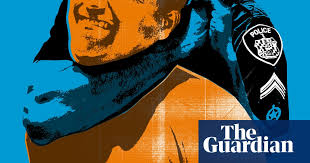
The killing of George Floyd at the hands of a Minneapolis, MN police officer has forced a national reckoning with structural racism, particularly with regard to mass incarceration, discriminatory law enforcement and the nature of policing, in particular. This seminar explores this often contested -- and controversial -- cultural, historical, social, policy and normative terrain.
And we will examine a number of questions: Why are Blacks 3-to-4-times more likely to be victims of police violence than whites? What are the origins of American policing? What should be the role of policing in a democratic society, especially given the unique and independent culture of some 18,000 police departments across the United States? In what way(s) does(do) racial bias affect policing? Or does it? What is meant that the work of police is to preserve ‘law & order?’ How are communities of color policed? What is “stop-and-frisk” and did policy actually work? How does the criminal legal process actually work? And finally, what are the implications of all of these questions for the crisis in racial justice in this country?
We will also explore these issues of social justice from a data science and geospatial perspective. That is, what types of analyses and visualizations might we do to investigate the nature of policing? To this end, we will work with a variety of datasets related to stop-and-frisk reports, crime incidents, arrests, jail and prison populations, police jurisdiction boundaries, city land-use, and the United States Census. By the end of the seminar, students will have the skills to support your policy narratives and arguments with reference maps and meaningful geospatial graphics.
Throughout the semester, we will be joined by myriad stakeholders across the spectra of policing, the criminal legal process, corrections, as well as community members impacted by police violence.
Importantly, this seminar is NOT an anti-police inquiry. Rather, we will utilize the pedagogical framework of the liberal arts to bring a critical lens to the nature of policing in the United States — and its particular function in urban communities throughout this country.
Prerequisites: POLS 2 or POLS 28. Or by permission of the Instructor.
And we will examine a number of questions: Why are Blacks 3-to-4-times more likely to be victims of police violence than whites? What are the origins of American policing? What should be the role of policing in a democratic society, especially given the unique and independent culture of some 18,000 police departments across the United States? In what way(s) does(do) racial bias affect policing? Or does it? What is meant that the work of police is to preserve ‘law & order?’ How are communities of color policed? What is “stop-and-frisk” and did policy actually work? How does the criminal legal process actually work? And finally, what are the implications of all of these questions for the crisis in racial justice in this country?
We will also explore these issues of social justice from a data science and geospatial perspective. That is, what types of analyses and visualizations might we do to investigate the nature of policing? To this end, we will work with a variety of datasets related to stop-and-frisk reports, crime incidents, arrests, jail and prison populations, police jurisdiction boundaries, city land-use, and the United States Census. By the end of the seminar, students will have the skills to support your policy narratives and arguments with reference maps and meaningful geospatial graphics.
Throughout the semester, we will be joined by myriad stakeholders across the spectra of policing, the criminal legal process, corrections, as well as community members impacted by police violence.
Importantly, this seminar is NOT an anti-police inquiry. Rather, we will utilize the pedagogical framework of the liberal arts to bring a critical lens to the nature of policing in the United States — and its particular function in urban communities throughout this country.
Prerequisites: POLS 2 or POLS 28. Or by permission of the Instructor.
- Teacher: Benjamin Berger
- Teacher: Keith Reeves
